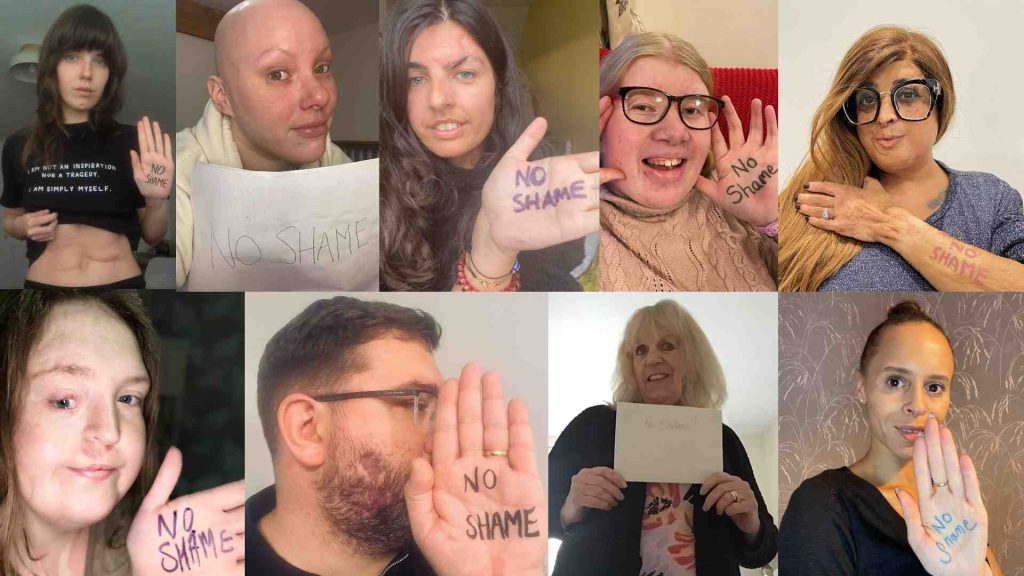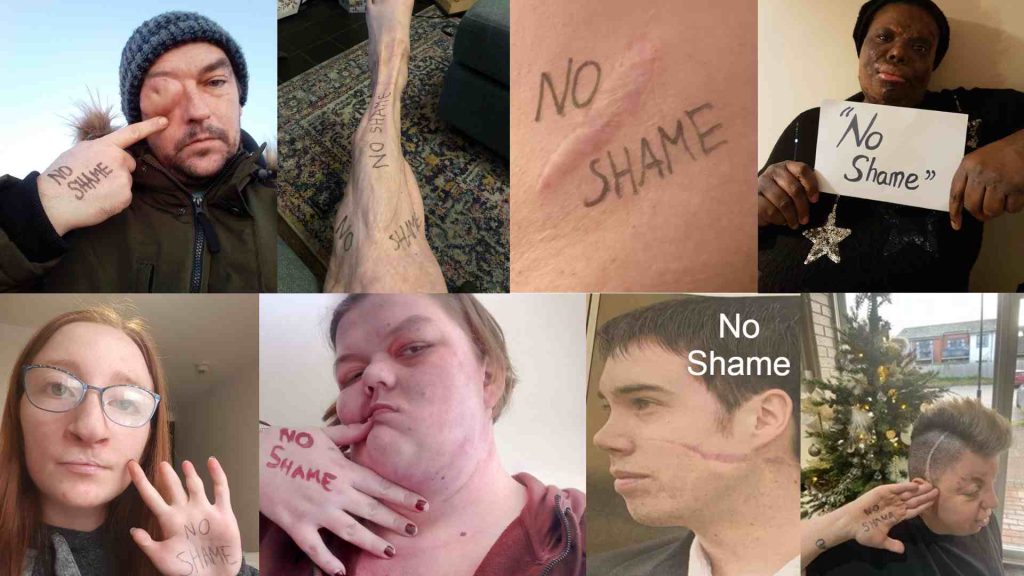The episode, which aired on Monday 28th November 2022, linked the word scar, to three other words: blot, stain and stigma.
Our supporter, Alison, was watching the show and contacted us, along with several other supporters, to alert us to what she had seen.
Alison has a visible difference herself and is a regular viewer of Only Connect. She explained:
“As someone living with a visible difference, I was absolutely flabbergasted and completely shocked when I saw the show, as the BBC promotes itself as a diverse and inclusive organisation. Everyday life is challenging enough for the visibly different community and the perpetuation of negative stereotypes like this just reinforces prejudice and discrimination against us.
“The terms and descriptions used on this Connecting Wall are a stark reminder of the barriers and issues we negotiate everyday.”

One of our ambassadors, Tulsi, who has burns scars, said:
“I am a burns survivor, and my scars are nothing to be ashamed of.
“Through my role as an ambassador for Changing Faces, I have met so many people who have visible differences and disfigurements, too many of whom have been made to feel less than by other people’s reactions. Words matter and positive representation matters, otherwise this outdated trope that scars and marks make someone inherently “bad”, “evil” or “shameful” will continue. We need organisations like the BBC to step up, apologise, own this mistake and commit to ending the use of language like that which we saw in Only Connect.”
We released research in 2021 which showed that people with scars and marks are still more likely to be represented on screen as a villain or “baddie”. Our research, carried out by Savanta ComRes, found that only one in five (20%) people with a visible difference have seen a character who looks like them cast as the hero in a film or on TV. Even fewer (15%) have seen someone with a scar, mark or condition that makes them look different playing the love interest on screen. Yet nearly double (39%) have seen someone with a visible difference cast as the villain or “baddie”.
Three-quarters (74%) of those questioned think popular culture is changing to be more inclusive, but people with visible differences are being left behind.
People with visible differences also report long term impacts from not seeing people who look like them represented in society and across popular culture. A third have low levels of confidence (34%), and three in ten have struggled with body image (31%) and low self-esteem (29%). A quarter (24%) say it has affected their mental health.
There is absolutely nothing shameful about having a scar. What is a shame is that as a society we are still perpetuating the myth that there is something wrong or problematic with visible differences like scars.
In 2018, our I Am Not Your Villain campaign won support from the British Film Institute which committed to not having negative representations depicted through scars or facial difference in the films it funds. We would be delighted if the BBC followed suit, showing leadership in television and radio, just as the BFI has done in film.
Heather Blake, our Chief Executive, said:
“We were disappointed and saddened to see, in 2022, the use of such harmful language being used on a show aired by the BBC. Many people may acquire a scar in their lifetime – it could be following an accident or trauma, a cancer surgery or even as a victim of a crime. There is absolutely nothing shameful about having a scar. What is a shame is that as a society we are still perpetuating the myth that there is something wrong or problematic with visible differences like scars.
“Changing Faces has written to the BBC and invited their creative teams to meet with us and our volunteer ambassadors, to learn about how to better represent those with visible differences. We’d also like them to update their training around diversity and inclusion, so it explicitly includes content about visible differences and disfigurements. Only through people learning and committing to do better will we see more positive representations and use of language around visible difference and disfigurements.”

We provide language guidelines for the media to help them better understand how to describe visible differences and disfigurements, in turn avoiding incidents such as this.
In 2021, we attended a roundtable hosted by Ofcom, where we presented to the major broadcasters, including representatives from the BBC, about the issue of negative representations of visible differences and disfigurements on screen and called for broadcasters to better train staff.
We hope that the BBC will acknowledge that describing scars – or any visible difference – as a “mark of shame” is completely wrong and should never have happened.
If you agree, please support us on social media by sharing our #NoShame posts.